
5th International Symposium on Sensor Science
Part of the International Symposium on Sensor Science (I3S) series
27–29 September 2017, Barcelona, Spain
- Go to the Sessions
- Event Details
Welcome from the Chair
From robots and self-driving cars to on-site medical diagnostics, the exciting advances in today's technology require sensors. Biologists, engineers, physicists and chemists are working to provide these sensors. This conference, supported by the journal Sensors, brings together scientists from different areas to discuss important recent developments in sensor technology. The conference format is designed to promote plenty of interaction between scientists and engineers from different disciplines. This is an opportunity to discuss important breakthroughs in sensor technology and related fields; broaden your knowledge, meet sensor scientists from other areas and perhaps develop new mutually beneficial collaborations.
We hope to see you there!
 27-29 September 2017
27-29 September 2017
 AXA Convention Centre, Barcelona, Spain
AXA Convention Centre, Barcelona, Spain
 Conference Awards 800€ (2)
Conference Awards 800€ (2)
Please feel free to download our I3S 2017 poster.
For sponsorship and exhibition opportunities take a look at our brochure for I3S 2017.
The program of the 5th International Symposium on Sensor Science (I3S 2017) is now available in the abstract book (last update September, 26th).
Conference Chairs
arben.merkoci@icn.cat
Instructions for Authors
- Create an account on Sciforum.net and follow the procedure to "Submit a New Abstract" in your User Home.
- Indicate which thematic area is best suited for your research.
- Submit a 200-word abstract in English.
- The deadline to submit your abstract is 13 July 2017. You will be notified by 28 July 2017 regarding the acceptance for poster presentation.
- Upon submission, you can select if you also wish to be considered for oral presentation. Following assessment by the Chair, you will be notified by 28 July 2017 in a separate email whether your contribution has been accepted for oral presentation.
Maximum poster size limited to 90x140cm, vertical orientation preferred. Please print your poster prior to the conference.
A plan of the poster session will be circulated later on.
- All accepted abstracts will be available online in Open Access form on Sciforum.net.
- All accepted abstracts will be published in the journal Proceedings.
- Participants of this conference are cordially invited to contribute with a full manuscript to our special issue "I3S 2017 Selected Papers" in the journal Sensors.
- This themed collection is closely aligned with the scope of the event. The submission deadline for this special issue is
31 December 2017. The conference participants will be granted a 20% discount on the publishing fees. - Sensors is indexed by the Science Citation Index Expanded (Web of Science), MEDLINE (PubMed), Compendex (EI) and other databases, and has an Impact Factor of 2.677 (Journal Citations Reports, 2016).
Conference Venue
The conference will be held at the Auditorium AXA, AXA Convention Centre, Barcelona, Spain.


Barcelona
Barcelona is the capital and largest city of Catalonia and is Spain's second largest city, with a population of over one and half million people (over five million in the whole province).
This city, located on the northeastern Mediterranean coast of Spain, has a rich and diverse history, with its roots dating back to Roman times when it was a settlement called ‘Barcino’.
In 1992, Barcelona gained international recognition by hosting the Olympic games which brought about a massive upturn in its tourism industry.
This had the effect of changing the city in ways that are still felt today, with neighborhoods that were renovated (and in some cases, leveled), updates to the public transportation system, and an intense focus on modern design, that permeates all aspects of life in Barcelona, from public buildings to something as simple as a park bench or an event poster.
For visitors, this has translated into the very modern, yet incredibly old city you see now in the 21st century, where new elements work to both preserve and celebrate both the city’s heritage and origins.
Barcelona is similar to other large cosmopolitan European cities with plenty of outdoor markets, restaurants, shops, museums, and churches. The city is also very walkable, with an extensive and reliable Metro system for more far-flung destinations. The core center of town, focused around the Ciutat Vella ("Old City"), provides many opportunities for enjoyment for those looking to experience the life of Barcelona, while the beaches the city were built to provide locations for sun and relaxation during the long periods of agreeably warm weather.
For a complete overview, see wikitravel.org.
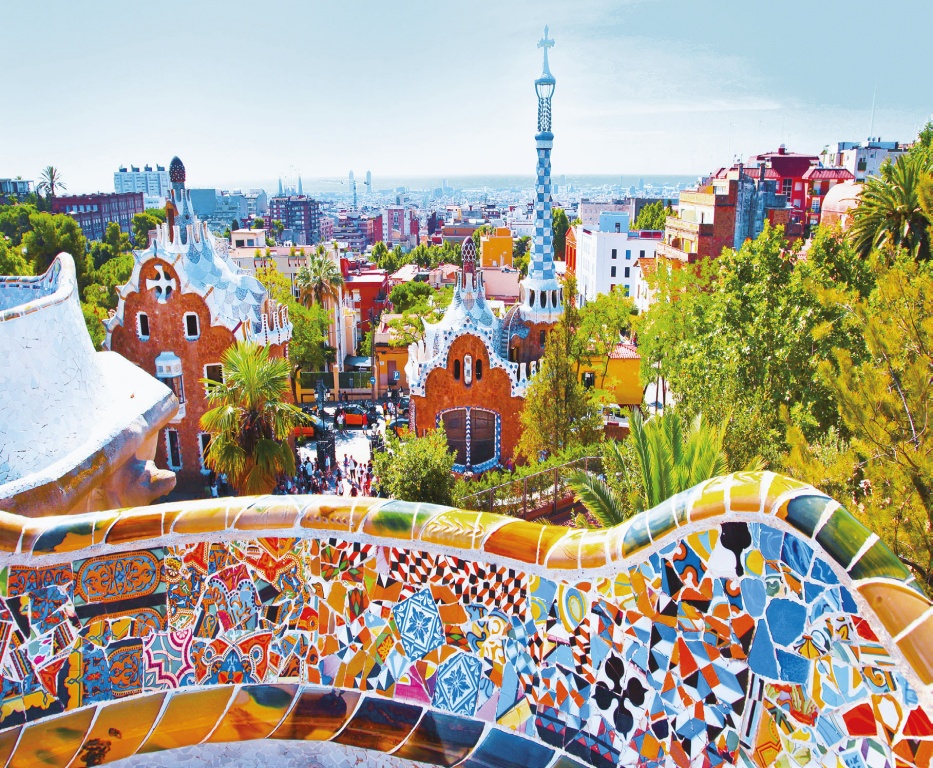
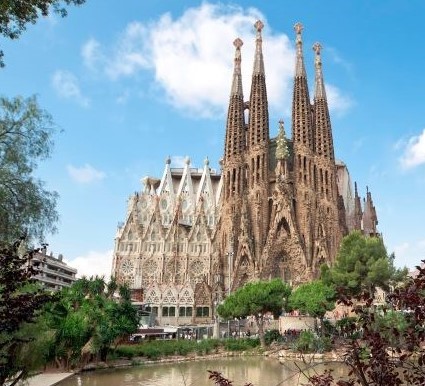
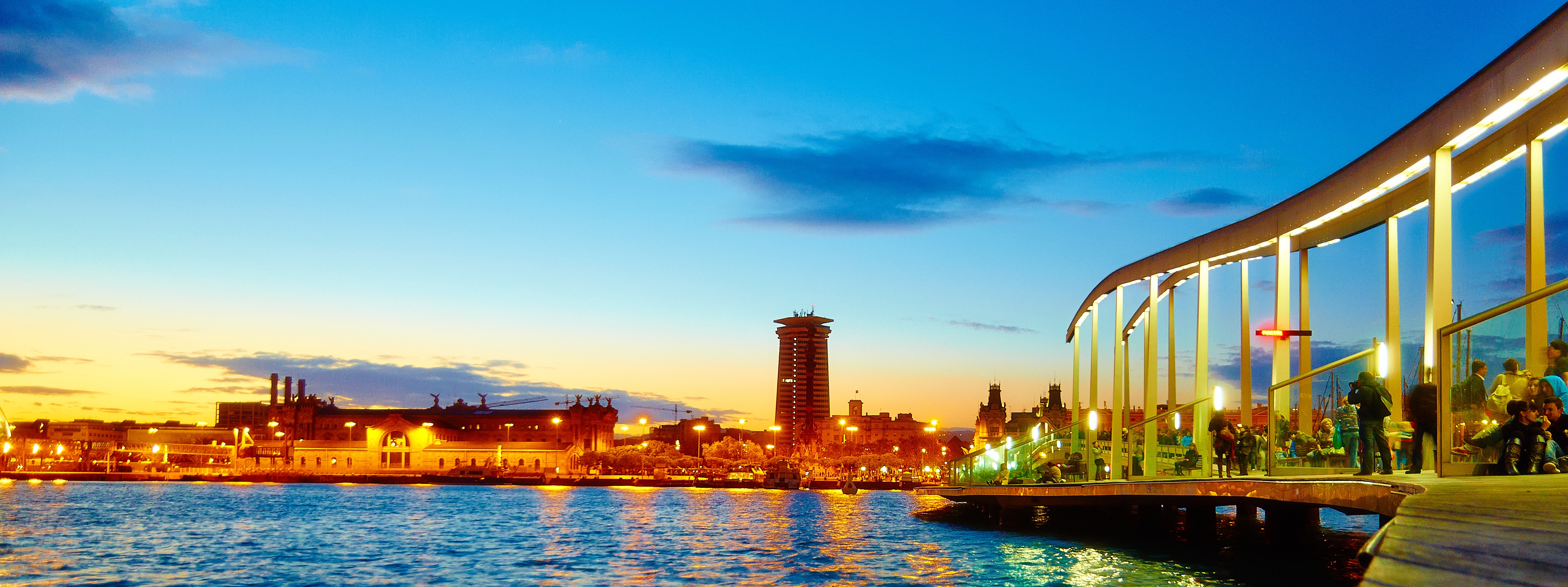
Travel and Accommodation
Barcelona, the capital of Catalonia, is one of the most popular tourist destinations in Europe. The city combines modern and historic architecture in a unique way.
| You can visit the official website of Barcelona Turisme for further information. |
Accommodation
We want your stay in Barcelona during the conference to be as good as possible. With that in mind, we have agreed a 10% discount with several hotels to make your accommodation choice a bit easier.
We are delighted to announce that the following hotels will offer a discounted price for all attendees to the 5th International Symposium on Sensor Science:
- Oriente Atiram and Meson Castilla Atiram: Located in Las Ramblas, have a fantastic central location, next to Plaza Catalunya and the famous Boqueria market, 25 minutes away (by metro) from the conference venue.
- Arenas Atiram: The Arenas Atiram Hotel offers a highly personalized service together with very friendly, elegant facilities, only a few meters away from the conference venue.
- Tres Torres Atiram: Located in the center of one of the best residential neighborhoods of Barcelona, next to the distinguished commercial and leisure districts Diagonal Avenue, 2 km away from the conference venue.
Please add the discount code ‘I3S17’ while making your reservation.
To ensure availability, we encourage you to book your accommodation as soon as possible.
Getting to Barcelona
| By Plane | 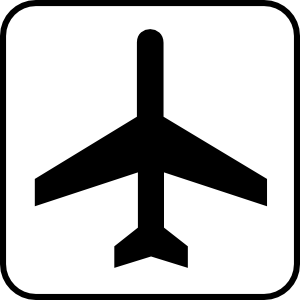 |
By Train | 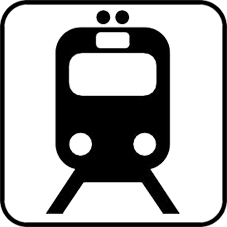 |
Once in Barcelona:
Public Transport (Bus & Metro): www.tmb.cat
Local Trains: www.fgc.cat
Some reasons to choose Barcelona - More info
Below are some references on trips and prices from Barcelona Airport to:
AXA Convention Centre (Venue)
Working days 23 €. aprox.
Holidays, weekends and nights: 26 € aprox.
Plaza Catalunya (city center)
Working days: 26 € aprox.
Holidays, weekends and nights: 30 € aprox.
Public taxis can apply four types of fares in Barcelona. These fares must be visible inside the taxi, and are usually printed on a sticker over the window. Finally, the amount payable must be indicated on the taximeter.
Visa Requirements
Citizens of the EU and the EFTA
Citizens of EU and EFTA countries must present valid personal identification, an ID card or a passport. No visa is required.
Regardless of their citizenship, family members of EU and EFTA citizens must present a valid passport and they must have a specific residence permit from a Schengen country (no visa required). Otherwise a visa must be obtained.
For more information, see http://www.exteriores.gob.es/Portal/en/ServiciosAlCiudadano/InformacionParaExtranjeros/Paginas/Inicio.aspx.
EU Countries: Austria, Belgium, Bulgaria, Croatia, Cyprus, Czech Republic, Denmark, Estonia, Finland, France, Germany, Greece, Hungary, Ireland, Italy, Latvia, Lithuania, Luxembourg, Malta, Netherlands, Poland, Portugal, Romania, Slovakia, Slovenia, Spain, Sweden, United Kingdom.
EFTA Countries: Iceland, Liechtenstein, Norway, Switzerland.
Schengen Countries: Austria, Belgium, Czech Republic, Denmark, Estonia, Finland, France, Germany, Greece, Hungary, Iceland, Italy, Latvia, Liechtenstein, Lithuania, Luxembourg, Malta, Netherlands, Norway, Poland, Portugal, Slovakia, Slovenia, Spain, Sweden, Switzerland.
Citizens of the USA and Canada
A valid passport is required. No visa is required for stays of up to 90 days.
Third-Country Nationals
A valid passport is required and in some cases a visa must be obtained prior to entering Spain. For more information, check http://www.exteriores.gob.es/Portal/en/ServiciosAlCiudadano/InformacionParaExtranjeros/Paginas/RequisitosDeEntrada.aspx.
Travel Insurance
Subscription to an insurance plan to protect you from the high costs of illness or accident during your stay in Spain is a prerequisite for obtaining your visa. You should obtain adequate travel, health and accident insurance before you depart from your country. The organizers are not responsible for personal injuries, or loss of, or damage to, private property belonging to the congress participants.
Letter of Invitation
A letter of invitation can be requested during the registration process using the "comments" field. The letter will be sent to you by email once the registration fees has been received. Letters of invitation do not include responsibility of, and, do not imply any financial support from the conference organizers.
Registration Fees
Registration Fees (in Euros)
| Early Registration (until 13 July 2017) | |
| Academic | 650 EUR |
| Section Editor and Guest Editor of Sensors | 300 EUR |
| MDPI Author* or Reviewer** | 550 EUR |
| Student | 400 EUR |
| Non-academic | 1000 EUR |
| Late Registration (from 14 July 2017 to 7 September 2017) | |
| Academic | 700 EUR |
| Section Editor and Guest Editor of Sensors | 300 EUR |
| MDPI Author* or Reviewer** | 600 EUR |
| Student | 400 EUR |
| Non-academic | 1100 EUR |
|
Special Sponsored Rate*** |
500 EUR |
The registration fee includes attendance of all conference sessions, morning/afternoon coffee breaks and lunches, participation in the conference dinner on the 28th of September, conference bag and program book. Other dinners are not included and are left at the convenience of attendees.
To register later than 7 September 2017 or for onsite registration, please contact the Conference Secretariat.
* First and last authors of articles published in 2014 or later will be granted a discount.
** Reviewers who provided timely review reports in 2014 or later will be granted a discount.
*** Academics who provided the special rate code will be granted a discount.
Cancellation Policy
Participation to the conference is considered final only once the registration fees have been paid. The number of participants is limited, once the number of paid registrations reaches the maximum number of participants, unpaid registrations will be cancelled.
| Cancellation of paid registration is possible under the terms listed below: | |
| > 2 months before the conference | Full refund but 100 EUR are retained for administration |
| > 1 month before the conference | Refund 50% of the applying fees |
| > 2 weeks before the conference | Refund 25% of the applying fees |
| < 2 weeks before the conference | No refund |
Scientific Committee
Chairman
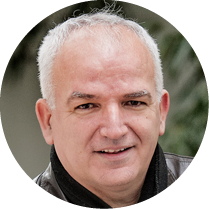 |
Prof. Dr. Arben Merkoçi |
Advisory Committee - Past Editions
Prof. Dr. Peter Seitz
Executive Chairman I3S2015
Senior Technology Expert, Hamamatsu Photonics Europe, Solothurn, Switzerland
Adjunct Professor of Optoelectronics, EPFL, Neuchâtel, Switzerland
Innovation Sherpa, Innovation and Entrepreneurship Lab, ETH Zürich, Zurich, Switzerland
Prof. Dr. Michael J. Schöning
Former Editor-in-Chief Sensors
Executive Chairman I3S2005
Director, Institute of Nano- and Biotechnologies, Aachen University of Applied Sciences, Juelich, Germany
Prof. Dr. Huangxian Ju
Executive Chairman I3S2004
Changjiang Professor, Director, State Key Laboratory of Analytical Chemistry for Life Science, Nanjing University, Nanjing, China
Prof. Dr. Milan M. Antonijevic
Former Editor-in-Chief of Sensors
Executive Chairman I3S2003
Technical Faculty Bor, University of Belgrade, Bor, Serbia
Scientific Committee
Confirmed Speakers
|
|
|
|
|
Prof. Dr. Maurizio Porfiri |
|
|
Conference Awards
The Platinum Sponsor, Sensors, offers two awards to our participants at the conference:
1. Best Poster Award (1): 800€.
2. Best Oral Presentation Award (1): 800€
The nominations will be assessed by the Organizing Committee.
Conference Dinner
We are glad to inform you that a Cocktail Dinner will be held on the 28th of September at Agüelo013, a cutting-edge restaurant specialized in Mediterranean cuisine which, in addition to its emblematic location in the Gothic Quarter of Barcelona and its picturesque dining rooms, will make your evening at the restaurant an experience to remember.
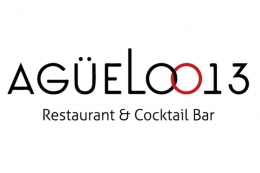
Agüelo013 is located at Carrer Avinyó 37, a street at the heart of the Gothic Quarter and only a couple of minutes away from the must-see avenue Las Ramblas. The restaurant is easily reached from the Conference Venue either by taxi or by Metro. If you were to choose the second option, the easiest way to get there is by taking the Metro Line L3 at Palau Reial Station and leave at Drassaness Metro Station after 9 stops.
Conference Photos
Welcome Message by the Conference Chair Prof. Dr. Arben Merkoçi.
Attendees registering on the first day of the event.
Speakers presented their research during the three-day event.
Audience of the 5th International Symposium on Sensor Science.
Round of questions and answers.
Time for discussion during the coffee break.
Conference's Sponsor Zimmer & Peacock presenting their products at the event.
Booth of the conference sponsoring journal Sensors.
Poster Session.
Time for discussion during the lunch break.
.jpg)
.jpg)
Attendees of the Conference Dinner.
Best Poster Awardee Johanna Pila, Conference Chair Arben Merkoçi and Conference Organizers Lin Li
and Lucia Russo.
Best Oral Presentation Awardees Paul Rawiel and Larisa Florea along with Conference Chair Arben Merkoçi
and Conference Organizers Lin Li and Lucia Russo.
The Conference Team would like to thank all the attendees for coming to this three-day event. We hope
to see you soon in the next edition of I3S!
Conference Schedule
You can now download the conference program and the abstract book of the 5th International Symposium on Sensor Science (I3S 2017), Barcelona (last update September, 26th).
Program Structure - 5th International Symposium on Sensor Science, 27-29 September 2017, Barcelona |
|||
|
|
Wednesday 27 September 2017 |
Thursday 28 September 2017 |
Friday 29 September 2017 |
|
|
Check-in |
S3. Bio-inspired and Bio-based Strategies for Sensing and Fluidics
|
S4. Sensors for Structures
|
|
|
Coffee Break |
Coffee Break |
|
|
Program Overview and Introduction of Keynote Speakers S1. Biosensors (Part 1)
|
S3. Bio-inspired and Bio-based Strategies for Sensing and Fluidics
|
S4. Sensors for Structures |
|
|
Lunch & Poster Session |
Lunch & Poster Session |
Lunch & Poster Session |
|
|
|
S2. Chemosensors |
S1. Biosensors (Part 2)
|
S5. Sensors Applications
|
|
Coffee Break |
Coffee Break |
Coffee Break |
|
|
S2. Chemosensors
|
S1. Biosensors
|
S5. Sensors Applications
|
|
|
Conference Dinner |
Closing Remarks |
||
Session Start
Wednesday 27 September 2017: 08:30 - 10:15 Check-in / 10:15 - 12:45 / 14:00 - 18:00
Thursday 28 September 2017: 08:30 - 13:00 / 14:00 - 18:15 / Conference Dinner: 20:30
Friday 29 September 2017: 08:30 - 12:45 / 13:45 - 18:00
Detailed Program
Day 1: Wednesday 27 September 2017
08:30 – 10:15 Check-in
10:15 – 10:30 Program Overview and Introduction of Session Chairs – Arben Merkoci
10:30 – 12:45 Session 1: Biosensors (Part 1)
Session Chair: Evgeny Katz
10:30 – 11:15 Jose M. Pingarrón "Improving Cancer Outcomes Through Electrochemical Biosensing of Early Diagnosis/Prognosis Biomarkers in Human Biopsies"
11:15 – 11:45 Lital Alfonta "Genetically Engineering of Enzymes and Electrode Modifications for Biosensing Applications"
11:45 – 12:15 Michael J. Schöning "Label-Free DNA Detection with Capacitive Field-Effect Devices—Challenges and Opportunities"
12:15 – 12:30 Manel del Valle “Molecularly Imprinted Polymers for TNT Analogues. Development of Electrochemical TNT Biosensors”
12:30 – 12:45 So Yamamoto “Redox Cycling Realized in Paper-based Electrochemical Biosensor for highly-selective Detection of Potassium Ferrocyanide in the presence of Ascorbic Acid”
12:45 – 14:00 Lunch and Poster Session
14:00–18:00 Session 2: Chemosensors
Session Chair: Vladimir M. Mirsky
14:00 – 14:45 Kenneth S. Suslick "The optoelectronic nose"
14:45 – 15:00 Fabio Di Francesco "Disposable sensors for monitoring chronic wounds"
15:00 – 15:15 Irene Lara-Ibeas "Conception and development of microfabricated elements for microfluidic analytical devices"
15:15 – 15:30 Andrea Gaiardo "Silicon carbide: a gas sensing material for selective detection of SO2"
15:30 – 15:45 Luigi Zeni "SPR Chemosensors based on D-shaped POFs and MIPs: Investigation on optimal thickness of the buffer layer"
15:45 – 16:15 Coffee Break
16:15 – 16:45 Thomas Hirsch "Two-dimensional carbon nanomaterials for electrochemical and plasmonic sensing applications"
16:45 – 17:00 Matteo Valt "Room Temperature Chemoresistive Gas Sensor Based On Organic-Functionalized Graphene Oxide"
17:00 – 17:30 Vladimir M. Mirsky "Detection of single sub-micrometer objects of biological or technical origin using wide field surface plasmon microscopy"
17:30 – 18:00 Radislav A. Potytailo "High value chemosensors in the era of industrial internet: Innovations in materials, transducers, and data analytics"
Day 2: Thursday 28 September 2017
08:30 – 13:00 Session 3. Bio-Inspired and Bio-based Strategies for Sensing and Fluidics
Chair: Dermot Diamond
08:30 – 09:15 Jaap den Toonder “Bio-inspired and Bio-based Strategies for Sensing and Fluidics”
09:15 – 09:30 Larisa Florea “Stimuli-Controlled Manipulation of Synthetic Micrometre-Sized Vehicles for Bio-inspired Fluidics”
09:30 – 10:00 Francisco Javier Andrade “Potentiometry, nanostructured materials and the emergence of paradigm-shifting analytical platforms”
10:00 – 10:30 Coffee Break
10:30 – 11:00 Luis Fermín Capitán-Vallvey “Coupling sensing and imaging devices: towards a complete handheld analytical system”
11:00 – 11:15 Margaret McCaul “Wearable Sensor for Real-Time monitoring of Electrolytes in Sweat”
11:15 – 11:45 Huangxian Ju “In Situ Biosensing of Cancer-Related Cellular Biomolecules”
11:45 – 12:00 Augusto Márquez “Portable and Miniaturized Lab on a Chip with Regenerable Membrane for Sanitary Emergencies”
12:00 – 12:15 Shadi Karimi “Microfluidic enabled Portable ABO reverse typing sensor”
12:15 – 12:30 Maciej Cieplak “Semi-Covalent Imprinting for Selective Protein Sensing at a Femtomolar Concentration Level”
12:30 – 13:00 Dermot Diamond “Stimuli-Responsive Materials and Biomimetic Fluidics: Fundamental Building Blocks of Chemical Sensing Platforms with Futuristic Capabilities”
13:00 – 14:00 Lunch and Poster Session
14:00 – 18:15 Session 1: Biosensors (Part 2)
Session Chair: Evgeny Katz
14:00 – 14:45 Wolfgang Schuhmann "From Reagentless Biosensors to Biofuel Cells and Self-Powered Bioelectrochemical Devices"
14:45 – 15:15 Marcos Pita "ATP Synthesis and Biosensing Coupled to the Electroenzymatic Activity of a Hydrogenase on an Electrode/Biomimetic Membrane Interface"
15:15 – 15:45 Dmitry Kolpashchikov "Nucleic Acid Analysis Using Multifunctional Hybridization Sensors"
15:45 – 16:00 Riccarda Antiochia “A comparative study between Hydrogen Peroxide Amperometric Biosensors based on different Peroxidases wired by Os-polymer: applications in water, milk and human urine”
16:00 – 16:15 Yulia Gerasimova “Split Deoxyribozyme Sensors for Pathogen Detection”
16:15 – 16:45 Coffee Break
16:45 – 17:00 Yuri Arutyunov “The Development of the "Sleeping Gene" Type Biosensor as a Method to Increase the Efficiency of the Magnetocardiograph Performance”
17:00 – 17:15 Denise Molinnus “Development of a Biosensor for the Detection of Acetoin during Wine Fermentation”
17:15 – 17:30 Thomas Knieling “Printed and Flexible Electrochemical Lactate Sensors for Wearable Applications”
17:30 – 17:45 Mehmet Özsöz “Electrochemical and SERS Based Biosensors for Cancer Biomarkers Detection”
17:45 – 18:15 Evgeny Katz "Integration of Biomolecular Sensing, Logic Processing of the Signals and Actuation"
20:30 Conference Dinner
Day 3: Friday 29 September 2017
08:30 – 12:45 Session 4: Sensors for Structures
Chair: Jandro L. Abot
08:30 – 09:15 Thomas Schumacher "Development of Self-Sensing Carbon Nanotube-based Composites for Civil Infrastructure Applications"
09:15 – 09:45 Tommy Chan "Recent Advances in Using Sensors for Structural Health Monitoring for Civil Structures"
09:45 – 10:15 Dirk Lehmhus "Linking Additive Manufacturing and Sensor Integration: A Direct Path towards Structural Electronics?"
10:15 – 10:45 Coffee Break
10:45 – 11:15 Christophe Delebarre "Innovative Aeronautical Structural Health Monitoring Ultrasonic Sensor: from Autonomy To High Sensibility"
11:15 – 11:30 Miguel Vicente "A Novel Laser- and Video-Based Displacement Measurement System to Monitor Vertical Deflections in Bridges"
11:30 – 11:45 Guido Luzi "Microwave sensors to monitor the displacement of civil structures: recent experimental campaigns and last issues towards advanced sensors"
11:45 – 12:00 David Valentín "Feasibility to detect natural frequencies of hydraulic turbines under operation using strain gauges"
12:00 – 12:15 Mónica Egusquiza "Optimized use of sensors to detect critical full load instability in Large Hydraulic Turbines"
12:15 – 12:45 Jandro L. Abot "Structural Health Monitoring Using Carbon Nanotube Yarns: Sensing Concept and Applications in Composites"
12:45 – 13:45 Lunch and Poster Session
13:45 – 18:00 Session 5. Sensors Applications
Chair: Stefano Mariani
13:45 – 14:30 Maurizio Porfiri "Multiphysics Modeling Ionic Polymer Metal Composites, with Application in Underwater Sensing"
14:30 – 15:00 Eleni Chatzi "A Monitoring Approach to Smart Infrastructure Management"
15:00 – 15:15 Yi Yang “Performance Analysis of LIDAR Assist Spatial Sensing for the Visually Impaired”
15:15 – 15:30 Mariana Medina Sánchez “Lab-in-a-tube, biosensors, cell detection, molecule detection”
15:30 – 15:45 Abraham Mejia-Aguilar “Landslide monitoring with multi-sensor and temporal scale approaches: a test site in alpine environment”
15:45 – 16:00 Louis McCarthy “Sensor Excitation and Measurement Techniques for CNT Thin Film Sensors”
16:00 – 16:30 Coffee Break
16:30 – 16:45 Stefano Mariani "Health monitoring of composite structures via MEMS sensor networks: numerical and experimental results"
16:45 – 17:00 Marco Messina “Design and Optimization of a MEMS-based Piezoresistive Accelerometer for Head Injuries Monitoring: A Computational Analysis”
17:00 – 17:15 Paul Rawiel “Integration and Synchronization of different sensors for the positioning of moving vehicles”
17:15 – 17:30 Larysa Baraban “Nanosensors for Monitoring Bacterial Growth Kinetics and Response to Antibiotics”
17:30 – 17:45 Diego Rivera “Protecting Sensors in an IoT Environment by Modelling Communications as Resources”
17:45 – 18:00 Closing Remarks & Awards Ceremony
P. Poster Exhibition
Session Chairs
Professor Vladimir Mirsky
Professor Evgeny Katz
Dr. Jandro Abot, The Catholic University of America
Dr. Stefano Mariani, Politecnico di Milano
Professor Dermot Diamond
Show all accepted abstracts (96) Hide accepted abstracts (96)
List of Accepted Abstracts (96) Toggle list
S1. Biosensors
Session Chair
Prof. Dr. Evgeny Katz
Clarkson University, Potsdam, NY, USA
"Integration of Biomolecular Sensing, Logic Processing of the Signals and Actuation"
Keynote Speakers
Prof. Dr. Wolfgang Schuhmann
Ruhr-University Bochum, Bochum, Germany
"From Reagentless Biosensors to Biofuel Cells and Self-Powered Bioelectrochemical Devices"
Prof. Dr. Jose M. Pingarrón
Complutense University of Madrid, Madrid, Spain
"Improving Cancer Outcomes Through Electrochemical Biosensing of Early Diagnosis/Prognosis Biomarkers in Human Biopsies"
Invited Speakers
Prof. Dr. Lital Alfonta
Ben-Gurion University of the Negev, Beer-Sheva, Israel
"Genetically Engineering of Enzymes and Electrode Modifications for Biosensing Applications"
Prof. Dr. Michael J. Schöning
FH Aachen University of Applied Sciences, Jülich, Germany
"Label-Free DNA Detection with Capacitive Field-Effect Devices—Challenges and Opportunities"
Dr. Dmitry Kolpashchikov
University of Central Florida, Orlando, FL, USA
Laboratory of Solution Chemistry of Advanced Materials and Technologies, ITMO University, Lomonosova St. 9, 191002, Petersburg, Russian Federation
"Nucleic Acid Analysis Using Multifunctional Hybridization Sensors"
Dr. Marcos Pita
Instituto de Catálisis y Petroleoquímica, Madrid, Spain
"ATP Synthesis and Biosensing Coupled to the Electroenzymatic Activity of a Hydrogenase on an Electrode/Biomimetic Membrane Interface"
Session Chair
Professor Evgeny Katz
Show all accepted abstracts (15) Hide accepted abstracts (15)
List of Accepted Abstracts (15) Toggle list
S2. Chemosensors
Session Chair
Prof. Dr. Vladimir M. Mirsky
Brandenburg University of Technology Cottbus, Senftenberg, Germany
"Detection of single sub-micrometer objects of biological or technical origin using wide field surface plasmon microscopy"
Keynote Speaker
Prof. Dr. Kenneth S. Suslick
University of Illinois at Urbana–Champaign, Urbana, IL, USA
"The Optoelectronic Nose"
Invited Speakers
Dr. Radislav A. Potyrailo
General Electric Global Research, Fairfield, NY, USA
"High value chemosensors in the era of Industrial Internet: Innovations in materials, transducers, and data analytics"
Dr. Thomas Hirsch
Universität Regensburg, Regensburg, Germany
"Two-dimensional Carbon Nanomaterials for Electrochemical and Plasmonic Sensing Applications"
Session Chair
Professor Vladimir Mirsky
Show all accepted abstracts (9) Hide accepted abstracts (9)
List of Accepted Abstracts (9) Toggle list
S3. Bio-inspired and Bio-based Strategies for Sensing and Fluidics
This session is focused on bio-inspired and biomimetic approaches to sensing and fluidics. Currently, many of the strategies for creating chemical sensors and biosensors, and microfluidics are largely engineering inspired ideas and concepts from the 1960s and 1970s. However, recent breakthroughs in materials science and fabrication technologies will drive fluidics and sensing towards approaches that are much more bio-inspired in nature. In this session, we will discuss the current state of the art in sensing and fluidics, and speculate on the potential disruptive impact bio-inspired concepts might have on this area.
Session Chair
Keynote Speaker
Prof. Dr. Jaap den Toonder
Eindhoven University of Technology, Eindhoven, The Netherlands
"Bio-Inspired Microfluidics for Wearable Sensors"
Invited Speakers
Prof. Francisco Javier Andrade
Universitat Rovira i Virgili, Tarragona, Spain
"Potentiometry, nanostructured materials and the emergence of paradigm-shifting analytical platforms"
Prof. Luis Fermín Capitán-Vallvey
University of Granada, Granada, Spain
"Coupling sensing and imaging devices: towards a complete handheld analytical system"
Prof. Dr. Huangxian Ju
Nanjing University, Nanjing, China
"In Situ Biosensing of Cancer-Related Cellular Biomolecules"
Session Chair
Professor Dermot Diamond
Show all accepted abstracts (10) Hide accepted abstracts (10)
List of Accepted Abstracts (10) Toggle list
S4. Sensors for Structures
Structural health monitoring of aerospace, civil and mechanical structures and components is becoming increasingly relevant to minimize maintenance costs and provide additional layers of safety for the users. The session will focus on the progress of existing or novel sensing concepts including synergies among sensing approaches. All sensing mechanisms including piezoelectrics, piezoresistive, electrostrictives, magnetostrictives, shape memory alloys or polymers and optical are included in this session. Experimental studies are preferred but computational approaches that include applications and experimental results are also welcome. Presentations on data fusion, networking and computing of large amounts of data that are geared towards structural health monitoring applications are also encouraged in this session.
Session Chair
Prof. Jandro L. Abot
The Catholic University of America, Washington, DC, USA
"Structural Health Monitoring Using Carbon Nanotube Yarns: Sensing Concept and Applications in Composites"
Keynote Speaker
Dr. Thomas Schumacher
Portland State University, Portland, OR, USA
"Development of Self-Sensing Carbon Nanotube-based Composites for Civil Infrastructure Applications"
Invited Speakers
Prof. Tommy Chan
Queensland University of Technology (QUT), Brisbane, Australia
"Recent Advances in Using Sensors for Structural Health Monitoring for Civil Structures"
Prof. Dr. Christophe Delebarre
Université de Valenciennes et du Hainaut Cambrésis, Valenciennes, France
"Innovative Aeronautical Structural Health Monitoring Ultrasonic Sensor: from Autonomy To High Sensibility"
Session Chair
Dr. Jandro Abot, The Catholic University of America
Show all accepted abstracts (9) Hide accepted abstracts (9)
List of Accepted Abstracts (9) Toggle list
S5. Sensors Applications
Session Chair
Dr. Stefano Mariani
Politecnico di Milano, Milano, Italy
Keynote Speaker
Prof. Dr. Maurizio Porfiri
New York University, Brooklyn, NY, USA
"Multiphysics Modeling Ionic Polymer Metal Composites, with Application in Underwater Sensing"
Invited Speakers
Prof. Dr. Eleni Chatzi
Institute of Structural Engineering, Zürich, Switzerland
"A Monitoring Approach to Smart Infrastructure Management"
Dr. Dirk Lehmhus
University of Bremen, Bremen, Germany
"Linking Additive Manufacturing and Sensor Integration: A Direct Path towards Structural Electronics?"
Session Chair
Dr. Stefano Mariani, Politecnico di Milano
Show all accepted abstracts (11) Hide accepted abstracts (11)
List of Accepted Abstracts (11) Toggle list


















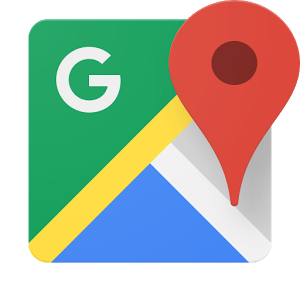
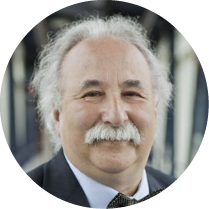
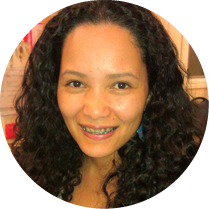
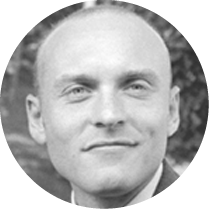
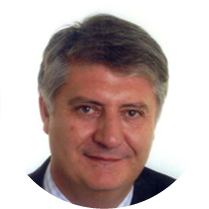
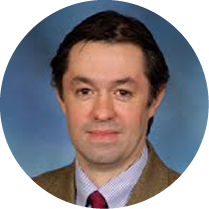
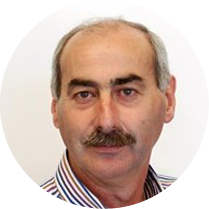
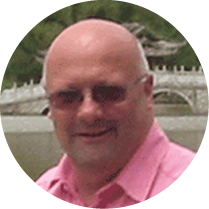
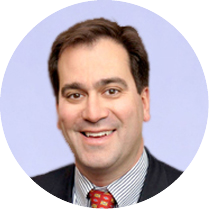
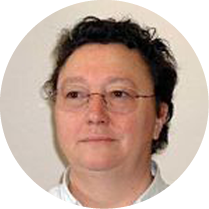
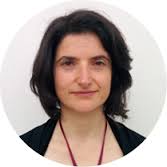
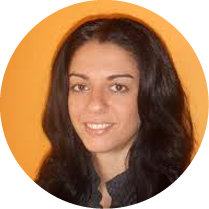
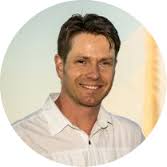
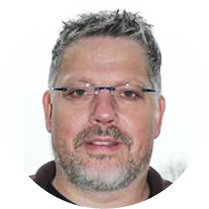
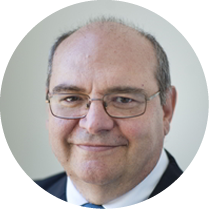
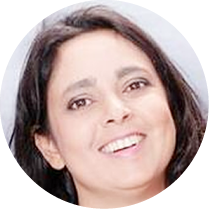
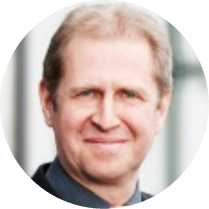
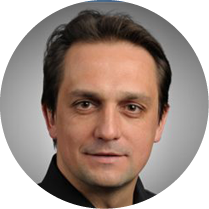
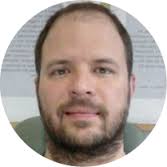
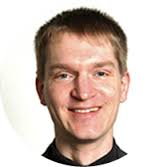
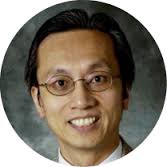
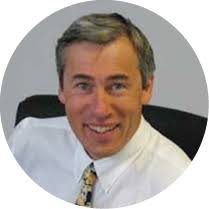
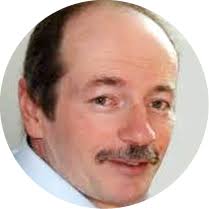
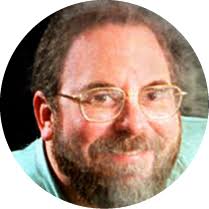
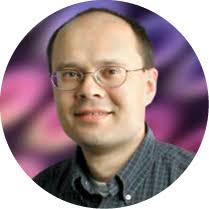

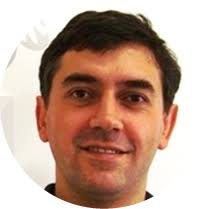

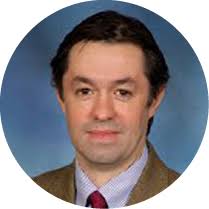
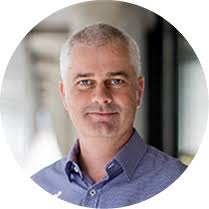

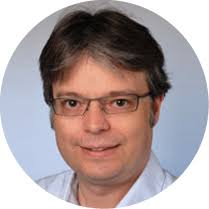
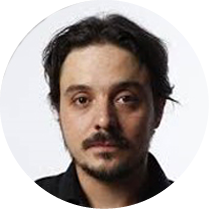
.JPG)
